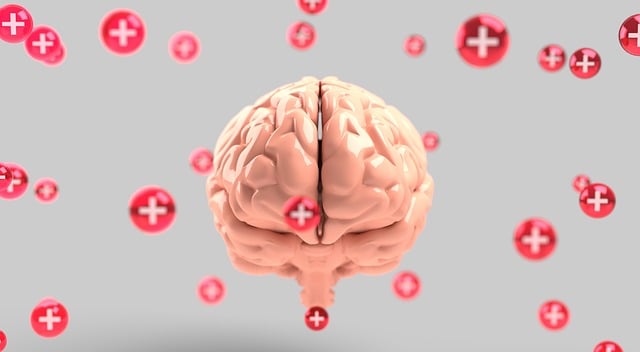Mental health advocacy, highlighted by initiatives like Lakewood Functional Neurological Disorder (LFND) Therapy, plays a crucial role in destigmatizing mental health issues and providing essential support. Through emotional intelligence, mind over matter principles, and targeted interventions, these programs foster open conversations and access to care for diverse conditions, including LFND. Building community through safe spaces and training healthcare providers enhances care quality while policy changes and legislative representation ensure timely resources and reduce stigma. This comprehensive approach empowers individuals to navigate mental health challenges effectively, improving quality of life and fostering an inclusive society that values mental wellness.
Mental health advocacy initiatives play a pivotal role in fostering understanding, breaking down stigma, and ensuring accessible support. This comprehensive article delves into various aspects of mental health activism, from raising awareness to policy changes. We present a case study on Lakewood Functional Neurological Disorder Therapy, highlighting specialized care’s impact. Additionally, we explore community-building strategies and the power of legislation in advancing mental health causes, offering valuable insights for advocates worldwide. Discover how these initiatives drive positive change, especially in specialized areas like Lakewood’s therapeutic approach.
- Understanding Mental Health Advocacy: The Need for Awareness and Support
- Lakewood Functional Neurological Disorder Therapy: A Case Study in Specialized Care
- Building Community: Strategies for Effective Mental Health Advocacy Initiatives
- Policy Changes and Representation: Advancing Mental Health Through Legislation
Understanding Mental Health Advocacy: The Need for Awareness and Support

Mental health advocacy initiatives are crucial in raising awareness and promoting support for individuals facing various mental health challenges, including conditions like the Lakewood Functional Neurological Disorder (LFND). Understanding mental health advocacy requires recognizing the pervasive nature of mental illness and the impact it has on daily lives. In today’s fast-paced world, burnout prevention strategies for healthcare providers are essential as they navigate complex cases like LFND.
By fostering emotional intelligence and implementing mind over matter principles, advocates seek to destigmatize mental health issues. This approach encourages open conversations, fosters empathy, and provides necessary resources for those in need. Such initiatives ensure that everyone, regardless of their struggles, has access to the support they require to lead fulfilling lives.
Lakewood Functional Neurological Disorder Therapy: A Case Study in Specialized Care

Lakewood Functional Neurological Disorder Therapy is a prime example of specialized care that has made significant strides in addressing unique mental health challenges. This initiative focuses on providing tailored support for individuals grappling with neurological disorders, offering hope and improved quality of life. By employing innovative therapeutic techniques, the program helps patients navigate their conditions, fostering inner strength and coping skills development.
The case study highlights the importance of targeted interventions, especially in raising public awareness campaigns development surrounding less-understood disorders. Through personalized approaches, Lakewood Therapy demonstrates that with dedicated support, individuals can manage symptoms, enhance their daily functioning, and embrace a more balanced mental health journey. This specialized care model serves as an inspiration for future initiatives, emphasizing the potential for transformative growth in the field of mental wellness.
Building Community: Strategies for Effective Mental Health Advocacy Initiatives

Building community is a powerful strategy for mental health advocacy initiatives, fostering connections and support networks that can revolutionize care. By creating safe spaces where individuals with similar experiences can gather, share their stories, and offer mutual support, communities become strong allies in navigating challenges related to mental health. For instance, local support groups or community centers dedicated to specific disorders, like Lakewood Functional Neurological Disorder Therapy, provide a platform for education, empathy building strategies, and mood management techniques.
Effective advocacy initiatives should also prioritize healthcare provider cultural competency training, ensuring that professionals are equipped to understand and address the unique needs of diverse populations. This involves promoting awareness about various mental health conditions, including rare or misunderstood disorders, and implementing empathy-building strategies within healthcare settings. Such approaches not only enhance the quality of care but also encourage open dialogue, reducing stigma and promoting timely access to resources for those in need.
Policy Changes and Representation: Advancing Mental Health Through Legislation

Policy changes and legislative representation play a pivotal role in advancing mental health initiatives, including those focused on disorders like Lakewood Functional Neurological Disorder (LFND). Effective advocacy pushes for policies that prioritize mental wellness, ensuring access to quality therapy, such as Lakewood functional neurological disorder therapy, is available to all. By championing legislation that supports research, early intervention, and comprehensive treatment options, we can reduce the stigma surrounding mental health issues.
This shift in policy can lead to improved social skills training and self-care practices integrated into educational and community settings. Such initiatives ensure individuals struggling with mental health challenges receive the necessary support, fostering a more inclusive society that values and prioritizes mental wellness for every citizen.
Mental health advocacy initiatives, as demonstrated by Lakewood Functional Neurological Disorder Therapy and community-building strategies, play a pivotal role in raising awareness and reducing stigma. Policy changes and legislative advancements further strengthen this cause. By combining specialized care, community engagement, and political representation, we can ensure that individuals with mental health challenges receive the support and understanding they deserve, ultimately fostering a more inclusive and compassionate society.














